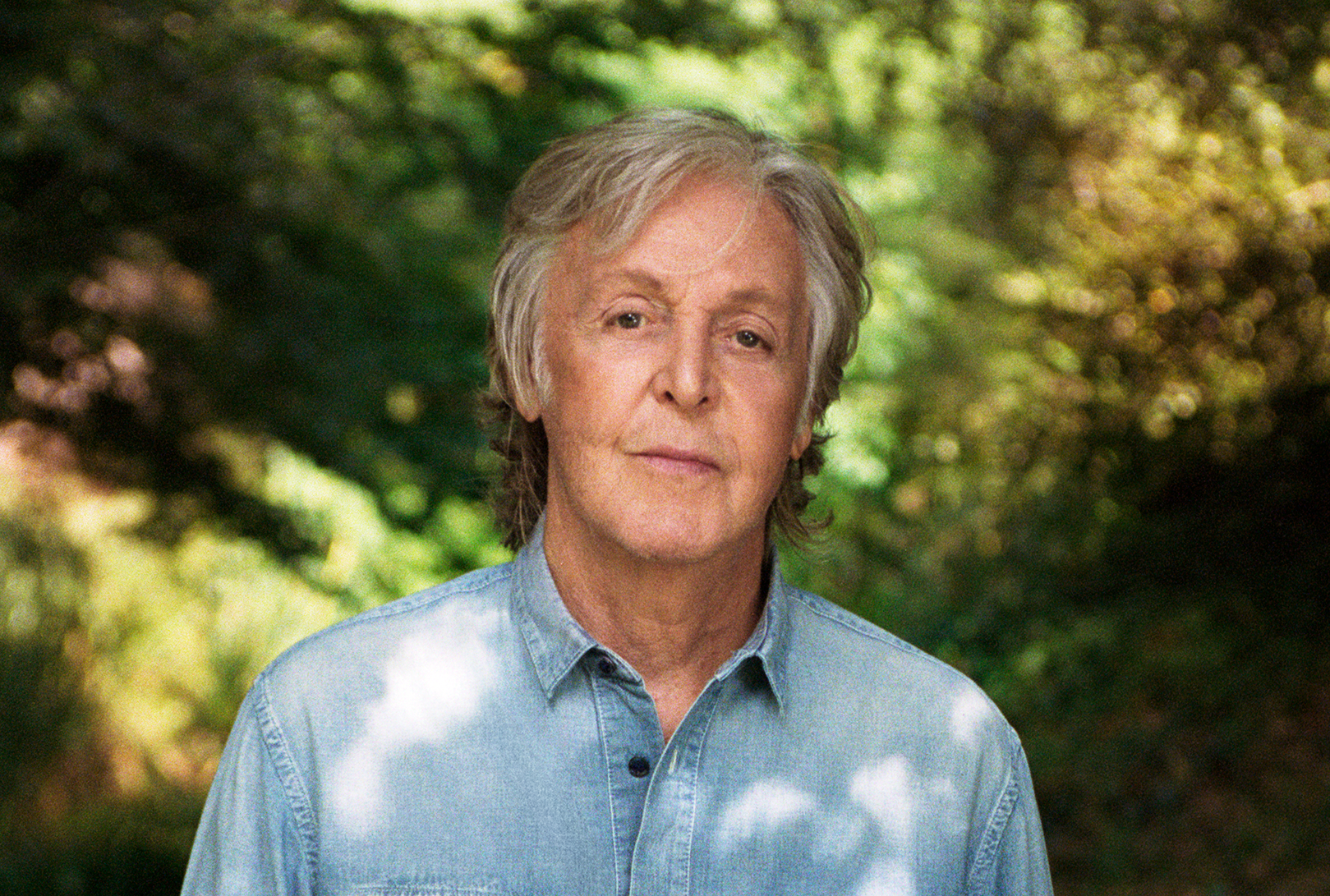Paul McCartney recounts a life of songwriting at talk on campus
Paul McCartney said “Hey Bulldog” at a talk in Woolsey Hall on Thursday night.

Mary McCartney
Thousands came together on Thursday evening to hear Sir Paul McCartney speak about his new book, “The Lyrics: 1956 to the Present.”
The conversation included Pulitzer Prize-winning poet Paul Muldoon, who edited McCartney’s book, and was moderated by Yale English professor Langdon Hammer. More than 2,500 people from Yale and the broader community attended the event in Woolsey Hall.
McCartney — who holds an honorary degree from Yale and whose grandson, Arthur Donald ’21, attended Yale — recounted his songwriting career at the event. He wrote 154 songs throughout his life, including unreleased tracks predating his time in the Beatles that appear in “The Lyrics.” During Thursday’s talk, McCartney also described his experience meeting and collaborating with fellow Beatles member John Lennon.
“I look forward to people listening to what I do, and digesting it, and finding meaning in it,” McCartney said during the event. “And then they take the baton and do their own thing, whatever it is. I see people playing in the street, and they say, ‘Your music changed my life.’And it’s like, ‘Wow!’”
The book arranges McCartney’s 154 compositions alphabetically rather than chronologically to provide a “kaleidoscopic” account of his career. It features song lyrics as well as the circumstances and events that inspired them.
Walking the crowd through his career, McCartney spoke about first meeting John Lennon in Liverpool when they were both young songwriters. McCartney told the attendees that “he wasn’t too keen on John” because when they first met, “John had been drinking beer” and critiqued McCartney’s piano skills. McCartney went on to reminisce about his and Lennon’s family backgrounds.
“I’d been brought up in a very loving family with my dad,” McCartney said. “Lennon’s family had not been like that with a lot of horrible things happening to him growing up. This made him acerbic, witty and sharp which I loved and made our songwriting so powerful.”
Because McCartney is left-handed, and Lennon was right-handed, McCartney said the two mirrored each other when composing together. Even though Lennon was killed more than four decades ago, McCartney told attendees that he still thinks about Lennon when he writes songs. When Hammer asked about where McCartney’s love for writing came from, McCartney told attendees about his experience with an English teacher who exposed him to Charles Dickens and other literary giants.
McCartney started in the English literature class at 16 as an “uninterested student,” but he said he quickly fell in love with Geoffrey Chaucer and William Shakespeare as his teacher “brought the words to life” through explaining the meaning of archaic phrases the writers used.
“The crazy early words these authors had written were fascinating, and he made it relatable,” McCartney said. “I’m very grateful from the bottom of my heart about the education I’ve received, and I ended up doing quite well in that one subject.”
Beyond his lyrics and songwriting history, McCartney also shared some of his favorite memories from performing with the Beatles, including a time the Beatles refused to play for a segregated audience in Jacksonville, Florida. McCartney told attendees that the group’s protest forced the venue to integrate the crowd.
He also explained that he was inspired to write the “Sgt. Pepper’s Lonely Hearts Club Band” record after he misheard someone say “salt and pepper.” McCartney then discussed the inspiration behind the hit songs “Hey Jude” and “Yesterday.”
Though he did not sing for the audience, McCartney told attendees that if he could have written any song by another artist, he would have wanted it to be “God Only Knows” by Brian Wilson of the Beach Boys.
For attendees, the event was “a once in a lifetime opportunity” to see someone whose work has impacted generations of people. Many Yale affiliates brought their parents who had first shared McCartney’s music with them to the event.
“I grew up on his music, and it virtually changed my life,” Thomas Violante, an attendee and former University spokesperson, told the News. “I started a rock band right after I heard ‘She Loves You’ and ‘I Want to Hold Your Hand.’ … Absolutely a living legend.”
The public ticket sale for the event launched on Feb. 11 at 2 p.m. and sold out within minutes. Attendees — and hopeful attendees — lined up to get seats within Woolsey Hall starting at noon.
Tickets were originally supposed to launch on Feb. 8. However, YaleConnect, the system through which tickets were originally sold, crashed within 10 minutes of the ticket release after thousands logged on to claim their free ticket.
“We’ve seen him a dozen times in concert, so when we heard about this, we thought, ‘This is new, this is different, this is not something we’ve ever seen him do before’ — to sit down in front of us and tell stories,” attendee Gabe Serrano told the News. “It was really cool to hear him talk about family life, Liverpool, and his love of English language and literature.”
Woolsey Hall has a capacity of 2,650.







